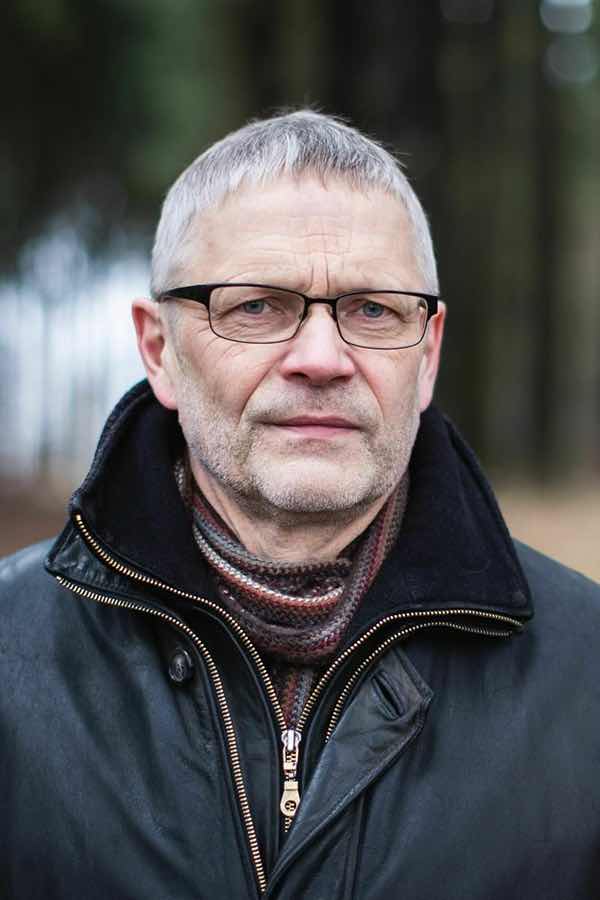Vox Populi
Erki Savisaar
former minister of the environment (Center Party)
I cannot agree with the assumptions presented in the question. Firstly,
it is not clear whether this fine will actually be imposed. Secondly,
the negative balance in the LULUCF sector does not result solely from
overlogging, but mainly from two factors. Firstly, the rapid and
extensive expansion of military training grounds, and secondly, one must
agree, poor forest management.
The age structure of our forests is such that there is too much old and
dead wood. In other words, it is not possible to significantly increase
carbon storage in living trees, meaning that the "carbon storage" is
already full. Secondly, old trees begin to die and become carbon
emitters. If we were to remove dead trees from the forest, the balance
would improve by four million tons and we would have fulfilled our goal.
Kalju Tamme
member of the governing board of the Estonian Nationalists and
Conservatives (ERK)
Firstly: who is being held accountable? Unfortunately, it is the
Estonian taxpayer, who gains no benefit from overlogging. The fine is
imposed on the state, but the state's money comes from taxpayers. As a
result, teachers' salaries remain the same, schools are closed, roads
remain unbuilt – and taxes are rising instead. With hundreds of
millions, the state could actually do a lot of good. Yet fines are
growing because new cuts are planned for wind energy development. But
I'm sure we'll manage.
Of course, it would be completely wrong to hold responsible the
officials and politicians who allowed the overlogging, or the forestry
companies that benefited directly from it. Our party does not support
this approach. The second and more important question is: why do we even
have to take responsibility? Estonia is a member of the European Union –
an institution whose regulations fine us for using our own resources and
destroy our energy sector. As a result, our economy suffers from high
and uncompetitive prices. At the same time, we must endure increasing
Eurobureaucracy, which stifles entrepreneurship and administrative
capacity. But I'm sure we'll manage.
We think it is completely wrong to believe our politicians and officials
should defend our national interests more forcefully, or even ask
whether EU membership is still beneficial under these conditions. Our
party does not support this approach.
Tiit Maran
member of the environment committee of the Riigikogu (Social Democratic
Party)
The "carbon fine" is largely a result of unsustainable forest
management. Estonian forests have unexpectedly become carbon emitters.
The reason is simple – changes to the Forest Act allow unsustainable
forestry, which is reflected in overlogging. For example, the felling
age for different tree species has been lowered, diameter-based felling
has been allowed, and the area of clear-cutting sites has increased.
The most significant changes took effect in early 2018 and have led to a
decrease in both forest stock and timber reserves in less than ten
years. It is precisely because of these decisions that we are now facing
the threat of "carbon fines" as a nation. These changes primarily served
the short-term interest of boosting timber supply but worked against the
sustainability of the environment and forestry. Those responsible are
found among those who influenced the changes to the forest law – they
include politicians, but attention should also be given to lobbying by
forestry research and the timber industry. What's more important than
finding the culprits, however, is solving the situation and steering
forestry toward sustainable development. It is extremely important to
consider the planned amendments to the Forest Act, as their direction
seems to take us even further from sustainability. We must be vigilant
in understanding who is behind the proposed decisions. If we fail to
make Estonian forestry sustainable, the fines currently looming will not
be the last; they will increase. Sustainable management is in the
interest of absolutely everyone, including the forestry sector.
Hanah Lahe
member of the Riigikogu (Reform Party)
We’re not paying the "carbon fine" because someone in Brussels
maliciously ordered it; we are paying because our country has not taken
climate policy seriously enough. Wrong decisions in energy policy (such
as the approval of the shale oil plant during the government of EKRE,
Isamaa and the Center Party) have brought us to this point. A similar
situation exists in other sectors, such as waste and the failure to meet
recycling targets – waste policy has been neglected for a long time.
Fortunately, this year, a waste reform bill is heading to parliament,
which will finally look at the sector in a new light.
In short, the fine is a consequence of political decisions. That's why
we need sensible climate policy that reduces emissions, invests in clean
energy, and helps businesses adapt to the green transition. Reducing
emissions is not ideological; it is economically responsible and ensures
the country remains competitive. Denying climate change and neglecting
climate policy is ultimately more costly than taking responsibility.
Siim Kiisler
deputy chairman of The Right
Estonia remains one of the most forest-rich countries in the European
Union, and Estonian forestry is in good condition. We are also at the
top of the EU for air purity and biodiversity indicators, and we have
reduced our greenhouse gas emissions faster than most EU countries.
Forest management is vital for Estonia's societal wealth. It generates
income for landowners and creates profitable jobs, especially in regions
where incomes are lower than in other parts of Estonia. Therefore, the
primary task of Estonian politicians should be to ensure that forestry
can operate and benefit society.
However, in recent years, an unacceptable situation has emerged –
Estonian public sector's carbon sequestration accounting methodology
differs significantly from that used by our neighbors, the Latvians,
whose forests are comparable to Estonia's. This difference in
methodology works against Estonia and no convincing explanation has been
provided for why this change was made.
Our politicians and officials must stand up to ensure that unfair
accounting methodologies do not harm us. These methodologies must be
reassessed and changed. If defending our freedom to do business and
manage our forests requires disputes with EU institutions or defending
our rights in the European Court of Justice, then we must do so. The
benefits of sensible forest management will absolutely outweigh any
disputes or losses in court.
Heiki Hepner
former member of the Riigikogu (Isamaa)
The origin of the potential environmental fines lies in the same place
as another hot topic from the past week – the mandatory cabling of all
Estonian parking lots with at least 20 spaces – the FIT 55 package. This
was pushed through under the leadership of the Reform Party, although
both Urmas Reinsalu and I voted against it in the European Union affairs
committee. The blame for this specific forestry problem lies with former
minister of rural affairs Urmas Kruuse, who voted in favor of it as
Estonia's representative in the Council of the European Union.
Estonia's forest management is similar in nature to that of Latvia and
Finland. Logically, we should be treated the same. Yet, our neighbors
face significantly lower expectations from the EU. The reason for this
disparity is that under the Reform Party's leadership, Estonia failed to
protect its interests. In other words, the old story -- Estonia's desire
to appear as a valedictorian in Europe led it to accept commitments that
were already unrealistic from the start, and now we face terrifyingly
expensive consequences.
Evelyn Sepp
Estonian Greens
The justification that we need to pay a fine because of overlogging is
nonsense! It obfuscates the true cause of the fine, the beneficiaries,
accomplices, and those responsible. Greed and corrupt interests are at
the heart of it, where business intertwines with officials, politicians,
and personal gain. The process has advanced to an alarming degree and,
unfortunately, continues.
The real question is why the prosecutor's office hasn't brought to court
those directing and participating in this "forest policy", those who
commissioned this policy and have profited for years from the schemes
that led to the fine and distorted competition, from pellets to the
massive export of paperwood and burning it for electricity. This has
never been part of green policy, it's just pure greenwashing!
Let me be clear: in wasting our national wealth in this way, these
activities have never been legal or sustainable. They have not been in
line with EU directives, directly applicable regulations, or our own
national environmental law.
It's hard to understand why the next batch of officials in charge has no
intention of understanding any of this, either; instead, they just
quietly plod along in the same tired old slippers.
The entire currently planned package of nature conservation,
sustainability policies, and associated legal frameworks deepens the
already tangible damage, not to mention legitimizing growing corruption,
as the abuse of power and influence threatens the democratic order in
Estonia.
The growing fines are just the surface; the real threat lies in the
rotten system that endangers the state.
This chain must be broken here and now, and the fine must be turned
directly against those who have profited from it, the money recovered
from the sector, and the opportunities and scale for abusing forest
logging and other land use regulations must be shut down immediately!






